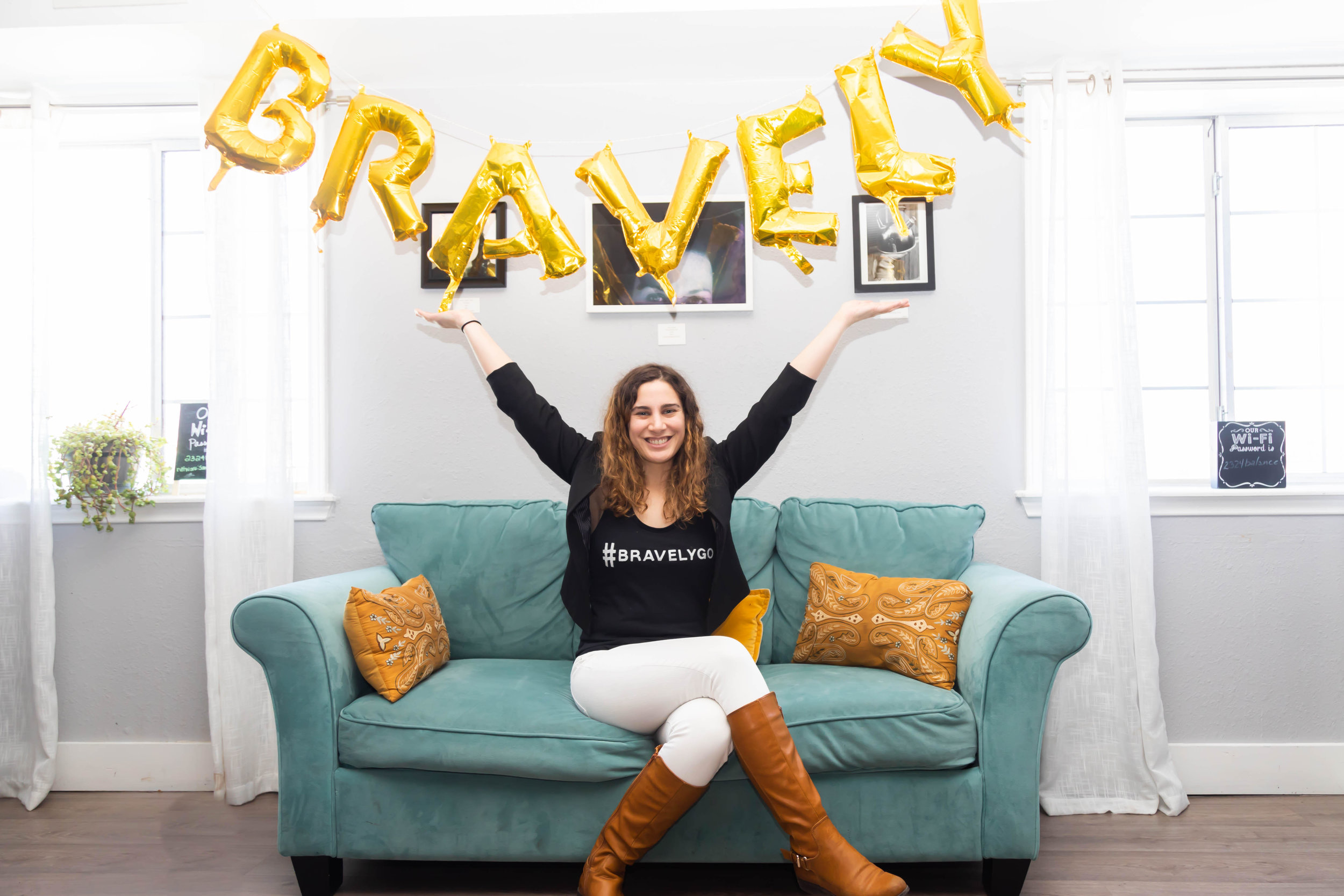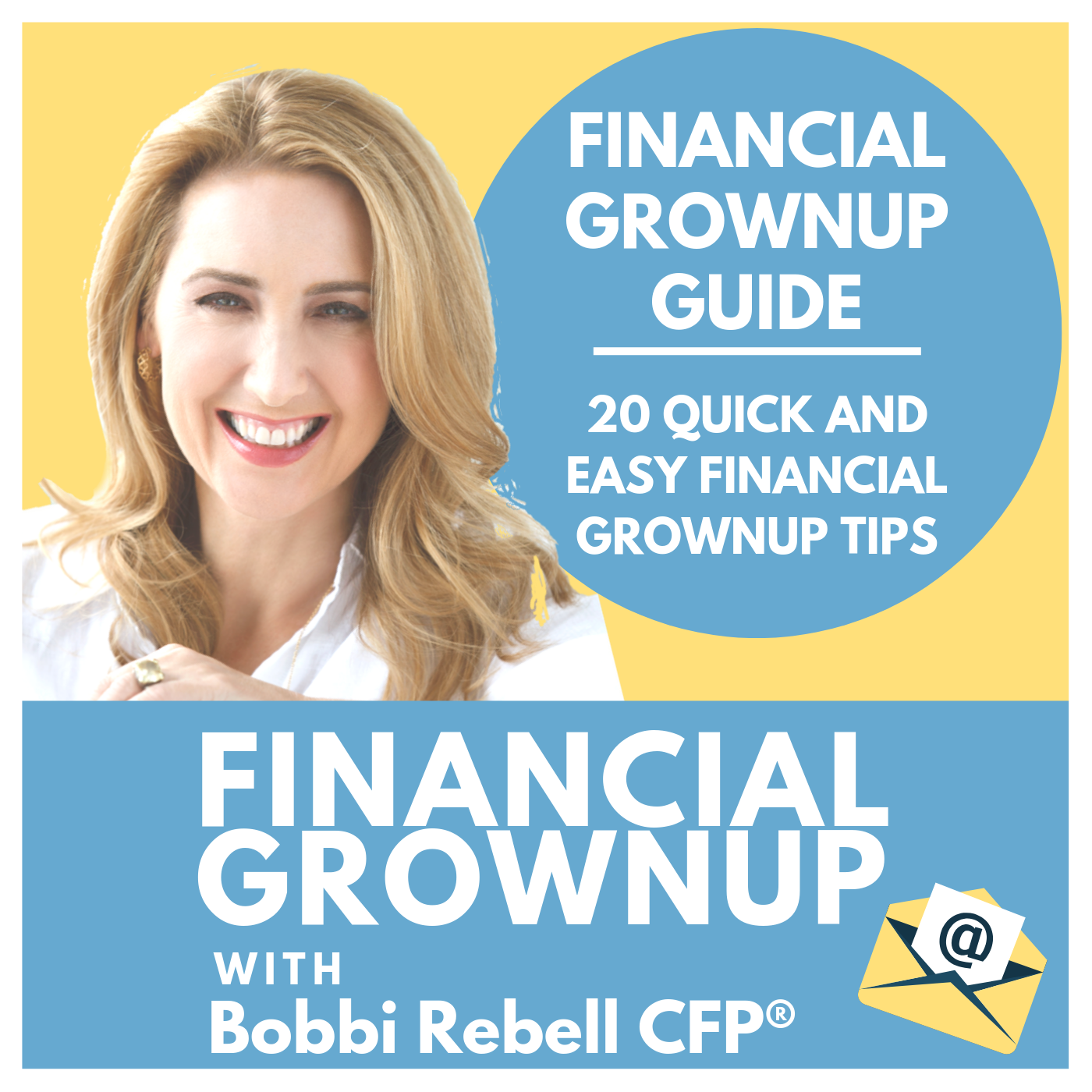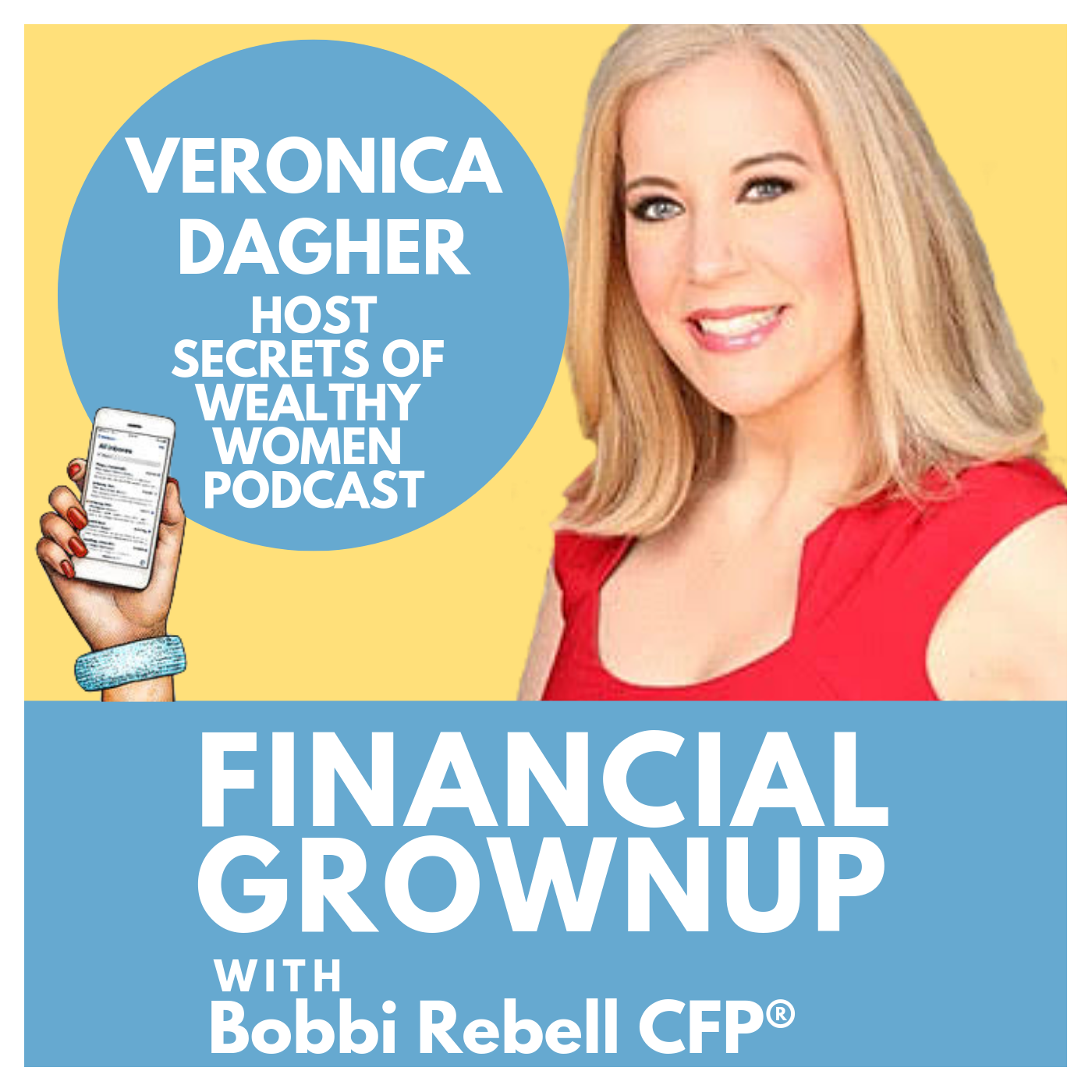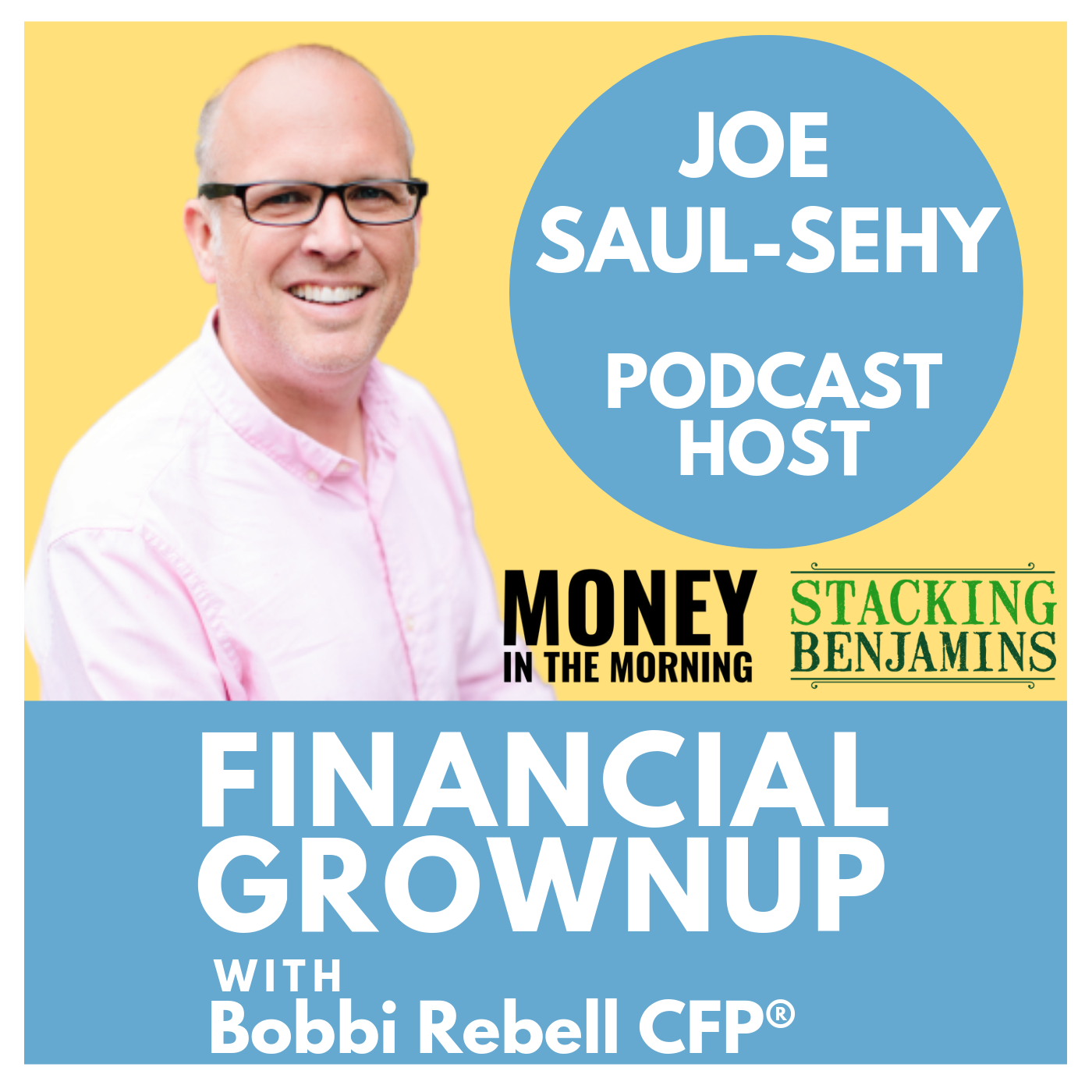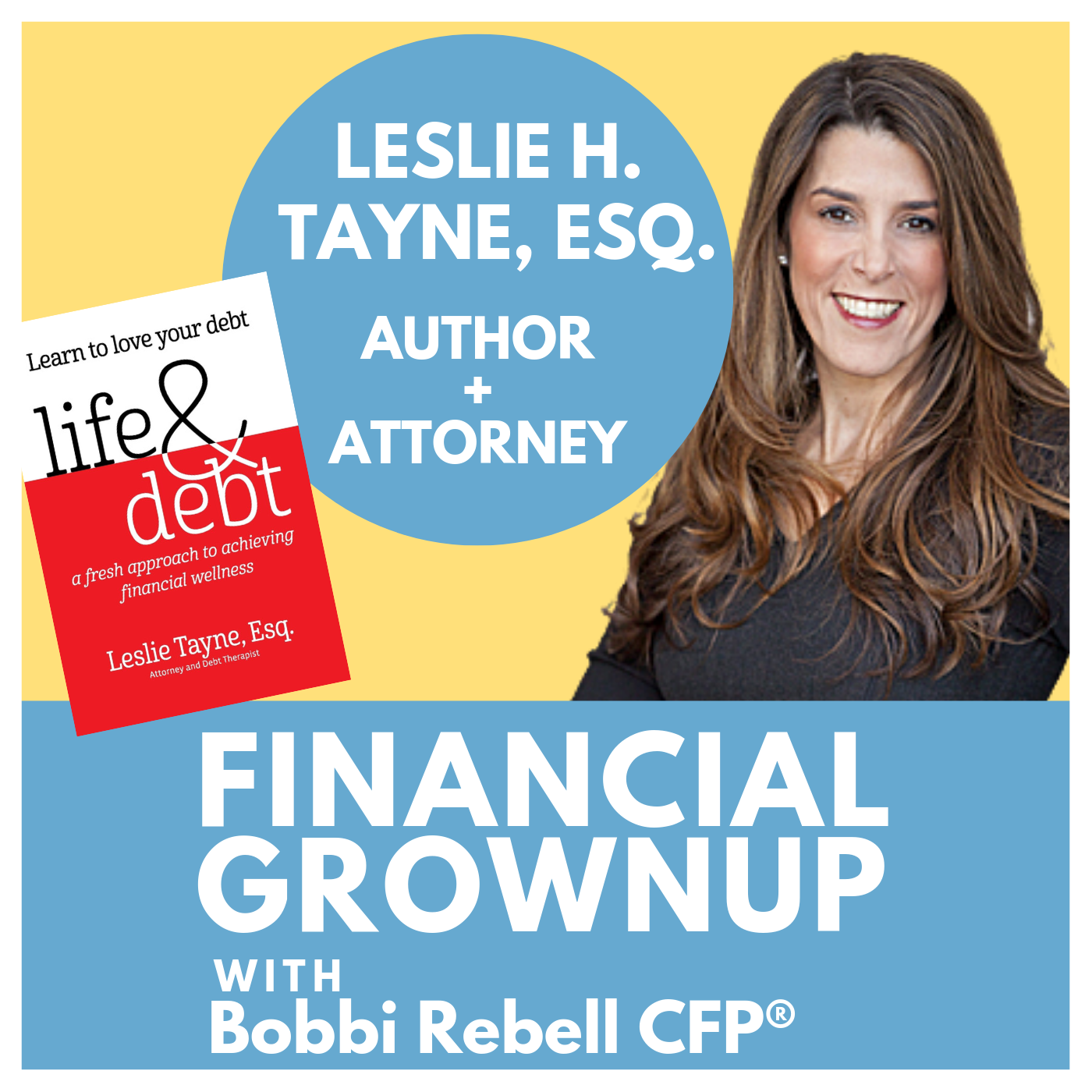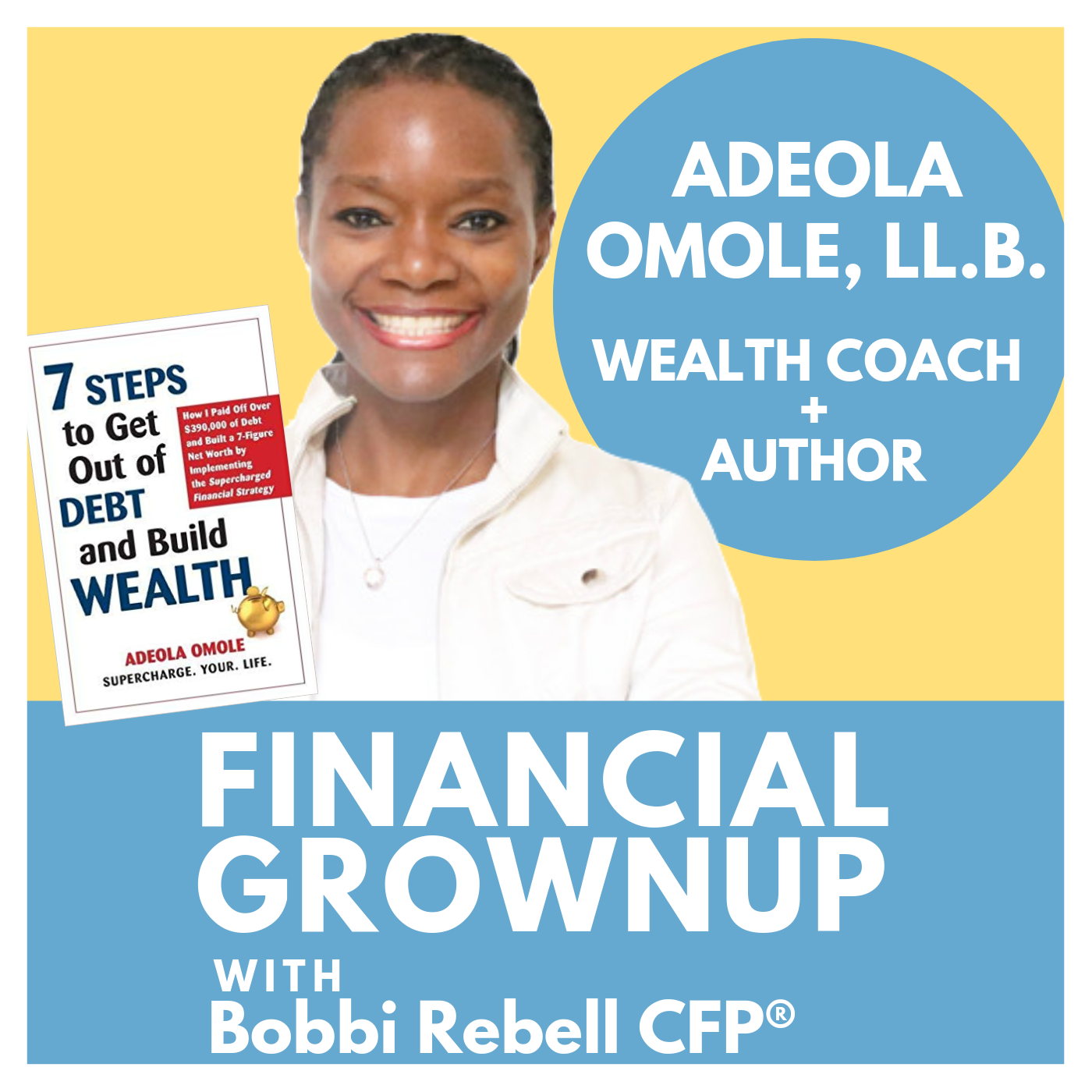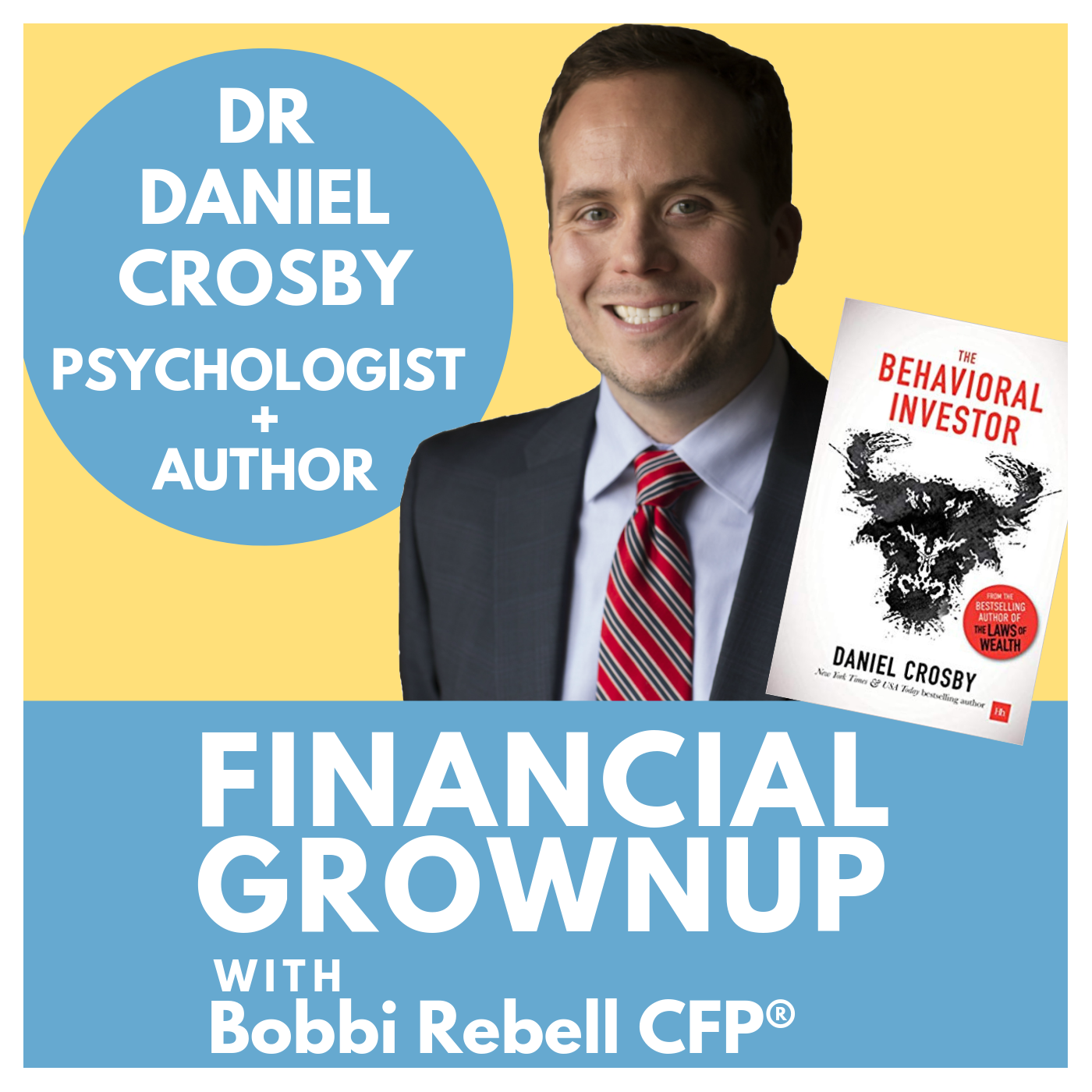Kara Perez of Bravely go and The Fairer Cents podcast shares how she tackled more than $25,000 in student debt making between $9 and $12 an hour. Plus her go-to home recipes for making foods you normally buy in the store including bread, pickles and tomato sauce.
“I had 5 student loans total. Four of them were public. One was private. And zero financial education.”
Kara’s money story:
Kara Perez:
Yes, so let me paint you a picture. I'm 26; I'm living in Austin, Texas. The year is 2014 and I am crying about money every day, because I don't have any and I have a lot of student loan debt and it's ruining my life.
Bobbi Rebell:
Okay, just paint the numbers. What do the numbers look like?
Kara Perez:
Yeah. So, in 2014 I made $18,000. I graduated college in 2011 with $25,302, so flash forward back to 2014, I still have a little over $18,000 in debt. So, my income is equivalent to my debt. I'm making between $800 and $1,100 a month, working as a caterer for $12 an hour and as an MMA gym receptionist for $9 an hour.
So, the money is not really there.
Bobbi Rebell:
Right. And how did you feel?
Kara Perez:
Oh, I felt awful. I just was very much so treading water, if not falling backwards. I had to put one of my student loans ... I had five separate student loans ... I had to put one of them into deferment, because I couldn't make payments on it. I just didn't have enough money. And I was living in Austin, Texas with three roommates. I was trying to be frugal, but it was just ... the numbers quite literally did not add up, and I felt trapped, because I didn't know anything about money.
I didn't know how to use what I had. I didn't know how to get more of it, and I had no idea how to tackle my debt. It just felt like a weight on my shoulders everyday.
Bobbi Rebell:
And I just want to dial back a little bit. How did the debt come about in that, when you were taking it out, did you receive any financial education in the schools? Was it federal loans? Were they private loans? Were you consolidating them? What did this debt look like?
Kara Perez:
Yeah. I had five student loans total. Four of them were public; one was private, and zero financial education. I mean, god bless my mom in many ways, but growing up, we didn't talk about money, except for the fact that we didn't really have to. Single parent household. I have two siblings, and it was just very much so like, no we can't get that. We don't have the money for it. Not, hey, here's what the budget looks like and here's how much we're spending on rent, so we can't spend such and such ... you know, I just didn't have that break down. And in college, I also didn't get that break down.
And so, the narrative I heard was like, well, you'll take out loans so you can afford to go to school, you'll get a job and you'll pay them back. But of course I graduated in 2011, which was the aftermath of the recession and no one cared about my degree in English and jobs were changing and the workplace was changing. That path of take out the loans, get the job, open a 401K, pay back the loans, it wasn't really there anymore.
And so, it was just a whole lot of, "What am I doing?" in my mid-twenties.
Bobbi Rebell:
So, what was the Google search for? What did you search on Google for?
Kara Perez:
Quite literally, how to pay off student loans faster.
Bobbi Rebell:
And what did you find?
Kara Perez:
What was amazing is that a bunch of people who were blogging about personal finance popped up, and now I'm friends with many of those people. I fell into the world of personal finance blogging, where people were sharing their own stories in very casual ways of, "Hey, we're trying to pay off $100,000 in medical school debt," or "We're saving to buy our house in cash." And I thought, okay, this story features a cop and a teacher. If they can do it, I can do it.
For the first time, instead of feeling overwhelmed by money, this insight into other people's stories via their blogs made me feel like, oh, you're a normal person; I'm a normal person. If you can do it, I can do it.
So, from that, I spent two months just voraciously reading personal finance blogs, everything, anything. I was just crushing it. And then I started implementing some of the things I learned in my own life. So, even though I still had a really tiny income, I was able to pay off about $3,000 in 2014 in student loan debt. And so I was making $18,000, paid of $3,000.
Bobbi Rebell:
What specifically did you do? What were the first things that you learned?
Kara Perez:
First thing I learned was to sign up for automatic withdrawals from my checking account to pay my student loans, because I got a .25 percent interest reduction. So, even though it was a teeny amount, and even though I was scared because I didn't always have money in the account, I signed up for it anyway and just committed to always having money in the account. I was like, I'll just find a way. If that means I have to cut back on going out, that's totally fine. If that means I have to pick up an extra shift, I'll pick up an extra shift, but I want to get that reduction so I pay less in interest and I can get out of debt faster.
Bobbi Rebell:
Okay, what other things did you do that you learned?
Kara Perez:
The other biggest thing I would say was just getting organized about which debt I was paying off at a time, because I used to just make an extra $20 payment on this loan and an extra $20 payment on that loan, and my extra payments were kind of just thrown all over the place, and thus they weren't really making an impact.
So, I streamlined it. I used the debt avalanche pay off method, and made all my extra payments on my highest interest debt, and that really started compounding quickly, because an extra $20 every two weeks starts to add up, and then the more money ... I started also focusing on earning more, and in 2015 I made $32,000, which felt like, whoo, so much money!
I was able to put more towards the debt and make an extra $100 payment or something every two weeks, and it really, really started to go down quickly.
“With the right information and the right application you can change your life”
Kara’s money lesson:
The biggest lesson is, with the right information and the right application, you can change your life. So, even if you are really low-income or you're working part-time jobs, or you don't have access to a lot of tools that maybe you see other people having access to, find out what works for you. So, for me, again, it was signing up to get that interest reduction. It was getting very frugal. It was making more money via picking up other side hustles, so that I could funnel all of that toward my debt.
“It often is a healthier choice to make things at home, as well as a time saving and money saving choice”
Kara’s money tip:
Kara Perez:
Yeah, so I am a big ... well, I don't want to say a big, but I am becoming a big at-home cook.
Bobbi Rebell:
We're all evolving.
Kara Perez:
We're all evolving. I'm trying, because I spent so long in the food service industry, I would always take home leftovers. I didn't have any cooking skills. So, this year, I have really focused on making more things from scratch, and I know that sounds a little like, oh, bougie, like, oh you have the time, and you have the energy to do it.
Bobbi Rebell:
Right, and not only that, it's just intimidating also, because a lot of things that you think ... you look around the supermarket and things are made for you. There are things ... it's one thing to say, I'm not going to buy prepared food. I can cut up the cantaloupe myself. Okay, we know you can do that, but a lot of things that we buy, that I assume have to be made in a factory, apparently don't.
Kara Perez:
Definitely not. So, my big thing this year has been making homemade bread, which sounds, again, kind of intimidating, but it's actually so easy.
Bobbi Rebell:
Yeah, because what if you don't have a bread maker. I don't even have room if I wanted to get one for a bread maker.
Kara Perez:
Right. I don't have a bread maker either. You just put your flour, your yeast, your salt and if you want to put something like oats or something in there, you just put it in a bowl, mix it all up with some water, and then you let it rise over night.
The mixing takes two minutes max, you let it rise, and then you pop it in the oven for about 30 minutes, and then boom, beautiful, delicious bread.
Bobbi Rebell:
So, why does everybody feel they have to buy a bread maker? What do the bread makers do?
Kara Perez:
I honestly don't even know.
Bobbi Rebell:
I don't know. I hope the bread maker people don't come after us.
Kara Perez:
The bread maker lobby.
Bobbi Rebell:
Exactly, but there are appliances for every little thing that I don't think that I don't think we really necessarily need, because that's one of my hesitations is, I don't want to do that, I don't want to take out. Like I know I could make mayonnaise myself, but you have to take out the food processor or whatever.
So, there's a couple other things that you're actually going to tell us how to make by ourselves, without having to go to the store, which by the way, also, you're avoiding all the preservatives and all that yucky stuff.
Kara Perez:
Yeah, it often is a healthier choice to make things at home, as well as a time saving and money saving choice. So, I also have started making pickles at home, which is, again, just literally you cut up the cucumbers, you stick them in your jar with some vinegar, some herbs, water, garlic and then you put the top on, and put it in the fridge for 12 hours, and then you've got pickles.
Bobbi Rebell:
Great. I would never think about that. All you have to do take the cucumber and do that, and then it's pickles.
Kara Perez:
Yep.
Bobbi Rebell:
But we always just ... I don't know. It never occurred to me.
Kara Perez:
Yeah, it does work.
Bobbi Rebell:
You got one more.
Kara Perez:
And I make tomato sauce, which we eat a lot of pasta in my house, and so, that, again, it's just kind of stewing the tomatoes, the onions, the garlic, for about 30 minutes and then, boom, tomato sauce.
Bobbi Rebell:
And by the way, I know making pasta is actually not that complicated either. It's basically just making the dough, and you don't need the fancy pasta-maker. You could just cut it into spaghetti or fettuccine or whatever shape you want. There's even just, little rollers that can make different shapes. So, you don't need the fancy pasta machine, that you therefore don't have to buy, and in my case, also, you don't have to have counter space for, because I'm in an apartment. So, I think that's a big thing to remember, that these don't require special equipment.
Kara Perez:
That's such a good ... I didn't even know that. I've been intimidated to make pasta, but now maybe that will be my goal for the next month, make some homemade pasta.
Financial grown-up tip number one:
Be proactive and take ownership of your financial challenges, and don't over-complicate them. For Kara, just having the information by Googling it, and looking up the most simple stuff and then figuring out the tools to create debt re-payment strategies was enough to get her on the path to success.
Financial grown-up tip number two:
Think about the things that we buy from the store that we don't have to buy. We already kind of have them right there, just in a different form. Maybe the labeling is different, but we basically already have them. We don't have to pay up for the fancy brand name.
For example, a lot of cleaning solutions are made up combining products you already have. Sometimes, just adding water. So, for example, and I got this from the Good Housekeeping Institute, which I'll leave a link to in the show notes. You could mix four tablespoons of baking soda with a quarter of warm water and you have a cleaning solution that works on kitchen counters, appliances and the inside of your refrigerator, so you don't need to buy separately another cleaning item, which may even have more chemicals added, who knows what, and you're keeping it simple.
And if you aren't impressed with the money that you are saving doing that, which you should be in general, okay, think of it as keeping your home less cluttered, and your to-do list shorter because you have one less product in your life, and that is, as I said, much less clutter. Just think how proud Marie Condo would be.
Episode Links:
Blinkist - The app I’m loving right now. Please use our link to support the show and get a free trial.
Kara’s website - www.BravelyGo.co
Kara’s course - Talk Money To Me
The Fairer Cents podcast
Good housekeeping article - https://www.goodhousekeeping.com/home/cleaning/tips/a24885/make-at-home-cleaners/
The Four-Hour Week by Timothy Ferriss
Follow Kara!
Instagram - @webravelygo
Facebook - @webravelygo
LinkedIn - @BravelyGoLLC




